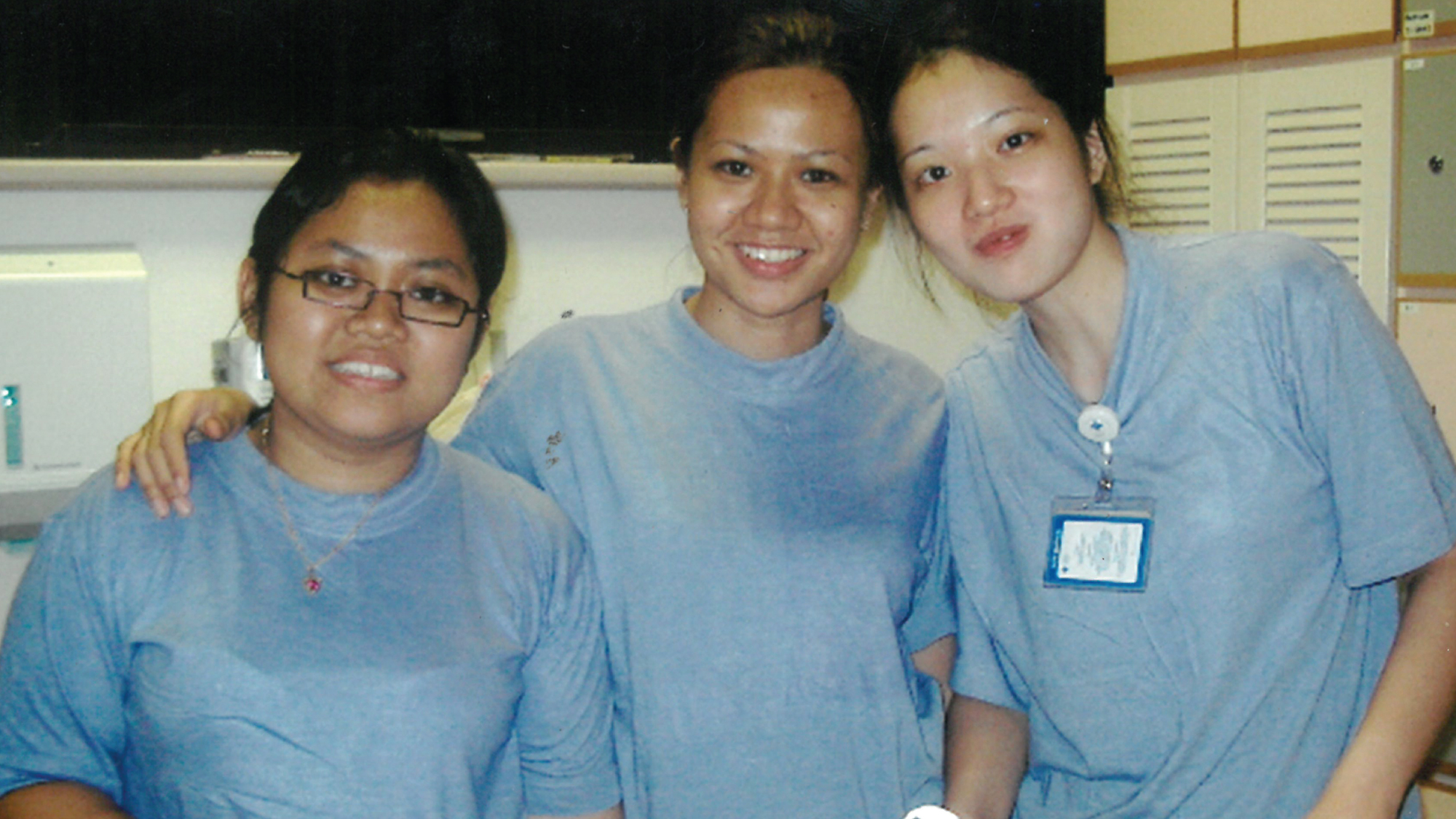SARS Made Me A Better Nurse
Noor Melati Ahmad, Nurse Clinician
National University Hospital
SARS survivor
WHEN I started work as a nurse in 2001, after graduating from Nanyang Polytechnic, I never thought I would end up on the hospital bed as a patient. Two years later, it happened.
I got the Severe Acute Respiratory Syndrome (SARS) infection from a patient who had come to NUH for treatment. At 22 years of age, all my concerns then were about my family and my boyfriend. I was scared I may not see them again!
I had all the symptoms. The high fever, chills, body aches and shortness of breath which went on for weeks. It was an emotional rollercoaster. I felt isolated, lonely and afraid. I was hospitalised in Tan Tock Seng for three weeks and at the Communicable Diseases Centre for a week. Even though I could see people coming to work and going home from the window of my room, it still made me feel like I was in a prison.
For a person who enjoys being in contact with colleagues, patients, family and friends, being confined in a room for two weeks was hard. Even the nurses, wearing full protective gear, would spend very little time in the room. They would only come in to give me my medicine and food.
I was allowed to have my phone and talked to my loved ones very often during this difficult period. My mother would call me every day and each time we talked, she would cry. Even my father, with whom I had a very strained relationship at the time, became emotional. I felt I had to put aside our differences and told him: “I am sick and I do not know if I will come out of this. I just wanted to say I love you.” And he replied in Malay: “Ayah pun sayang Noor (father loves you too, Noor).” That is probably the only time he has ever said that to me.
After I was given the all-clear from SARS, my grandmother asked my mother to stop me from continuing with nursing. She felt I had escaped one infectious disease but may not be so lucky the next time. My mum stood up for me. She told my grandmother that my SARS episode was a sign that I could overcome any ordeal.
It helped that nurses were in the limelight at that time, so my mum motivated me to continue to help others. The SARS ordeal strengthened my relationship with my boyfriend too. We got engaged in 2004 and married a year later, after I finished my advanced diploma in nursing focusing on oncology. Now we have two daughters and a son.
SARS taught me that life is short, that we must appreciate what we have. As a nurse, you see caregivers and patients at their most vulnerable. I see death almost every day and I have patients who are so young, university or polytechnic age, or young mothers diagnosed with breast cancer or leukaemia.
I remember what I felt like as a SARS patient and try to spend as much time as I can with them, talking to them about how they feel. They ask me: “Am I going to die?”. It is hard for them to hear that they have cancer and, in some cases, they might not recover from it. But when they accept it, they appreciate the time they have to spend with their families.
“Caring for our People: 50 years of healthcare in Singapore”; reprinted with the kind permission of MOH Holdings Pte Ltd.

Noor Melati Ahmad (centre) with NUH colleagues who gave her support during her SARS ordeal.
